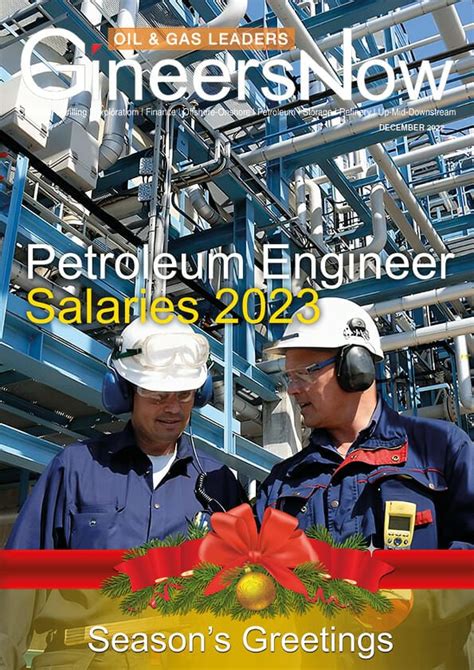Embarking on a career as an oil rig engineer can be both lucrative and rewarding. These highly skilled professionals play a crucial role in the exploration, extraction, and development of the world’s oil and gas resources. Their expertise and technical proficiency demand a competitive salary that reflects the importance of their contributions.

Factors Influencing Oil Rig Engineer Salary
Numerous factors influence the compensation packages of oil rig engineers, including:
- Experience: Seasoned engineers with extensive experience command higher salaries than their less experienced counterparts.
- Location: Rig engineers working in remote or hazardous environments typically earn premium wages due to the inherent risks and challenges associated with their work.
- Education: A bachelor’s or master’s degree in a relevant engineering discipline, such as petroleum engineering, mechanical engineering, or electrical engineering, can significantly boost earning potential.
- Specialization: Engineers specializing in specific areas, such as deepwater drilling or reservoir management, often qualify for higher salaries.
- Company size and reputation: Larger oil and gas companies with established reputations tend to offer more competitive salary packages than smaller or lesser-known firms.
Salary Ranges and Benefits
According to the U.S. Bureau of Labor Statistics, the median annual salary for petroleum engineers, including oil rig engineers, was $134,570 in May 2020. The top 10% of earners in this field surpassed $211,330, while the lowest 10% earned less than $75,260.
In addition to base salary, oil rig engineers are often eligible for a range of benefits, including:
- Health and dental insurance
- Life insurance
- Disability insurance
- Paid time off
- Retirement plans, such as 401(k)s and pensions
- Tuition reimbursement or professional development opportunities
Career Advancement and Earning Potential
As oil rig engineers gain experience and develop their skills, they have the potential to advance their careers and earn higher salaries. Senior engineers with supervisory or management responsibilities typically command the highest salaries.
Some oil rig engineers also choose to pursue specialized certifications or advanced degrees to further enhance their earning potential. For example, the American Petroleum Institute (API) offers a Registered Professional Engineer (RPE) certification, which can significantly boost a rig engineer’s credibility and earning capacity.
Job Outlook and Future Trends
The job outlook for oil rig engineers is expected to remain favorable in the coming years, driven by increasing global demand for oil and gas. As the world transitions to cleaner energy sources, the focus on offshore drilling and production is likely to continue, creating a strong demand for qualified oil rig engineers.
One emerging trend in the oil and gas industry is the use of automation and robotics. While these technologies have the potential to improve efficiency and reduce costs, they may also impact the job market for oil rig engineers. However, it is anticipated that engineers with expertise in these emerging technologies will remain in high demand.
Conclusion
The oil rig engineer profession offers a lucrative and rewarding career path for qualified individuals. With a combination of experience, expertise, and dedication, oil rig engineers can earn competitive salaries and enjoy a range of benefits. As the global demand for oil and gas continues, the job outlook for these professionals remains positive, setting the stage for a promising future in this critical industry.
FAQs
1. What is the average salary for an oil rig engineer?
The median annual salary for petroleum engineers, including oil rig engineers, is $134,570.
2. What factors influence oil rig engineer salaries?
Experience, location, education, specialization, and company size are all factors that can impact salary.
3. What benefits are available to oil rig engineers?
Benefits typically include health and dental insurance, life insurance, paid time off, retirement plans, and professional development opportunities.
4. What is the job outlook for oil rig engineers?
The job outlook is expected to remain favorable in the coming years due to increasing global demand for oil and gas.
5. How can oil rig engineers advance their careers?
Engineers can advance their careers through gaining experience, developing specialized skills, and pursuing additional certifications or degrees.
6. What is the impact of automation on oil rig engineer jobs?
Automation is expected to increase efficiency and reduce costs, but it may also impact the job market for oil rig engineers. However, engineers with expertise in emerging technologies will remain in high demand.
7. What are the challenges facing oil rig engineers?
Oil rig engineers face challenges such as working in remote locations, hazardous environments, and extreme weather conditions.
8. What skills are needed to be successful as an oil rig engineer?
Successful oil rig engineers possess strong technical skills, problem-solving abilities, and teamwork skills. They are also adaptable, resilient, and able to work under pressure.
